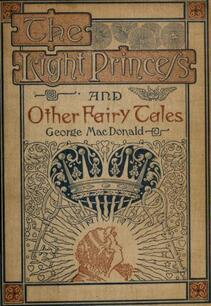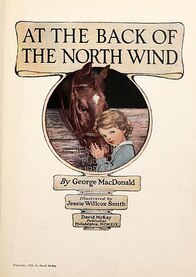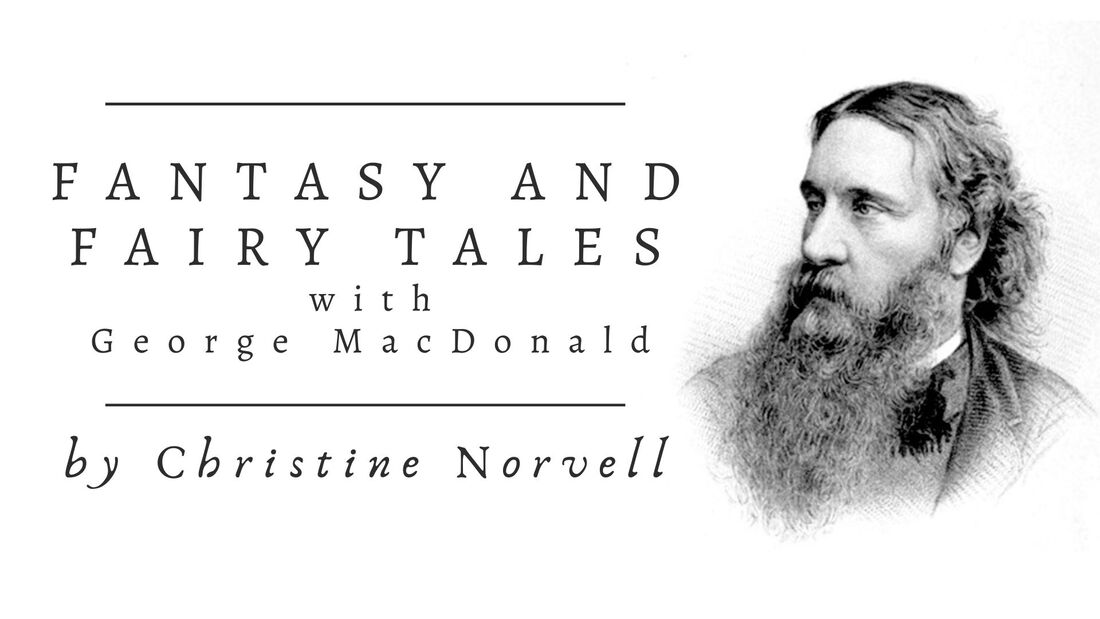 I’m no stranger to George MacDonald. In fact, I would say I often feel like his welcome companion when I’m immersed in his fiction or poetry. You may have read my reviews of Annals of a Quiet Neighborhood or Castle Warlock on this blog or my thoughts on Sir Gibbie or MacDonald’s Christmas poetry, but I recently read George MacDonald’s 1893 essay “The Fantastic Imagination” for the first time. For those who write, read, or teach fantasy or fairy tales, MacDonald provides a delightful perspective. Fairy tales really have nothing to do with fairies, or at least they don’t have to. They do, however, have a “natural law” unto themselves as MacDonald writes. Our imagination won’t work without it. This is what he means. When we create from our imaginations and write a story, we naturally follow a pattern of harmony. MacDonald explains it this way: if you were to give a bizarre or crude accent to “the gracious creatures of some childlike region of Fairyland,” then wouldn’t the tale sink then and there? The pieces of the tale must harmonize and not stick out. Inharmonious, unconsorting ideas will come to a man, but if he try to use one of such, his work will grow dull, and he will drop it from mere lack of interest. Law is the soil in which alone beauty will grow; beauty is the only stuff in which Truth can be clothed; and you may, if you will, call Imagination the tailor that cuts her garments to fit her, and Fancy his journeyman that puts the pieces of them together, or perhaps at most embroiders their button-holes. Obeying law, the maker works like his creator; not obeying law, he is such a fool as heaps a pile of stones and calls it a church." MacDonald continues with a lively question and answer section in his essay. He repeats relevant questions I’m sure he must have heard many times during his literary tours at home and abroad. "You write as if a fairytale were a thing of importance: must it have meaning?"  And so on. We each bring our own meaning to what we read and what we experience as we read, but children don’t worry about such things. It seems only adults do. This is where MacDonald introduces us to my favorite simile. Maybe I like it because it’s a musical term. Maybe it’s because it’s not black and white. But MacDonald says, “The true fairytale is, to my mind, very like the sonata.” He argues that words aren’t as precise as we suppose. If a few men were to listen to a sonata and then write down what they thought it meant, the very action would destroy its effect upon them. The tale is to be experienced, not analyzed. It is for the beauty, not for facts and knowledge. It should stir and wake us. The best way with music, I imagine, is not to bring the forces of our intellect to bear upon it, but to be still and let it work on that part of us for whose sake it exists.” What do you think of MacDonald's observations?
I would love to hear your thoughts in the comments below. To read MacDonald’s full essay found at the George MacDonald Society, click here.
2 Comments
Suzy Davies
9/13/2020 04:04:35 pm
I love the musical analogy. Writing has so much in common with music; holism, unity, harmony, cadence.
Reply
Christine
9/13/2020 04:11:01 pm
I agree, Suzy! As a musician, the parallel is clear to me too. Music and tales have an effect upon us that we can all appreciate without overanalysis.
Reply
Your comment will be posted after it is approved.
Leave a Reply. |


 RSS Feed
RSS Feed